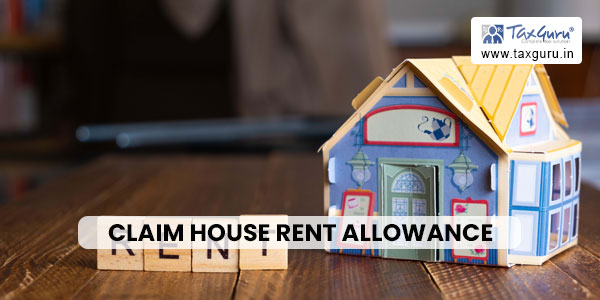Introduction
House Rent Allowance (HRA) is a component of salary provided by employers to employees to meet their accommodation expenses. The Indian Income Tax Act allows taxpayers to claim exemptions on HRA under certain conditions. Understanding the rules and guidelines for claiming House Rent Allowance Exemption can significantly reduce the tax burden for salaried individuals. In this article, we will walk you through the process of claiming HRA exemption in income tax.
Eligibility Criteria for HRA Exemption
To be eligible for HRA exemption, an individual must meet the following conditions:
1. Salaried Individuals: Only salaried individuals can claim HRA exemption. Self-employed individuals cannot avail of this benefit.
2. HRA Component in Salary: The individual must receive HRA as a part of their salary. Employees receiving a lump sum amount without any separate mention of HRA are not eligible for the exemption.
3. Rent Paid: The taxpayer must incur actual expenses towards rent for a residential accommodation.
4. Residential Accommodation: The rented house must be the taxpayer’s place of residence. The exemption is not applicable if the house is used for commercial purposes.
5. Own House: If the taxpayer owns a house and claims HRA exemption, they cannot use that property for self-residence or rental purposes. Only one property, generally the one occupied by the taxpayer’s parents, can be considered for tax purposes.

Calculating HRA Exemption
To determine the amount of HRA that is eligible for tax exemption, the lowest of the following three amounts is considered:
1. Actual HRA Received: This is the total HRA received by the employee from their employer.
2. Rent Paid Minus 10% of Basic Salary: The exemption is allowed on the amount that exceeds 10% of the basic salary. The basic salary includes basic pay and dearness allowance if applicable.
3. 50% of Basic Salary (40% in non-metro cities): This is the maximum HRA exemption allowed under the Income Tax Act. If the rent paid exceeds this amount, the exemption is still limited to 50% (or 40% in non-metro cities) of the basic salary.
Documentation Required
To claim HRA exemption, taxpayers need to maintain the following documents:
1. Rent Receipts: Rent receipts should be obtained from the landlord and must include the landlord’s name, address, rental period, amount paid, and the landlord’s signature.
2. Rent Agreement: A rent agreement or lease agreement should be in place between the taxpayer and the landlord.
3. House Owner’s PAN: If the annual rent exceeds Rs. 1,00,000, the landlord’s Permanent Account Number (PAN) is mandatory.
Claiming HRA Exemption in Income Tax Return
To claim HRA exemption while filing income tax returns, follow these steps:
1. Calculate the HRA exemption amount using the criteria mentioned above.
2. Fill in the HRA exemption amount in the relevant section of the Income Tax Return (ITR) form.
3. Ensure that all the required supporting documents are attached as proof of rent paid and HRA received.
Conclusion
Claiming House Rent Allowance (HRA) exemption is a beneficial provision for salaried individuals, as it reduces their taxable income and thus, their overall tax liability. By adhering to the eligibility criteria and keeping proper documentation, taxpayers can avail of the HRA exemption without any hassles. As tax laws can change, it is always advisable to stay updated with the latest regulations and consult a tax professional if needed. Properly utilizing the HRA exemption can help individuals optimize their tax planning and secure their financial future.





